The Day of Arafah, observed on the 9th of Dhul Hijjah, is Islam’s holiest day, central to the Hajj pilgrimage. It is a time of divine mercy, forgiveness, and spiritual reflection for pilgrims and non-pilgrims alike.
Significance of the Day of Arafah in Islam
The Day of Arafah holds immense significance in Islam as it is considered the holiest day of the year. Occurring on the 9th of Dhul Hijjah, it is a pivotal moment during the Hajj pilgrimage, where pilgrims gather on the Plain of Arafah to seek divine mercy and forgiveness. The Prophet Muhammad (peace be upon him) emphasized that fasting on this day expiates sins for the past and upcoming year. It is also a day when Allah (SWT) forgives countless believers and releases souls from Hellfire. The essence of Arafah lies in its connection to divine mercy, forgiveness, and the acceptance of supplications. For non-pilgrims, it is a unique opportunity to engage in intense worship, seeking Allah’s pardon and blessings. This day serves as a powerful reminder of the importance of spiritual reflection and devotion.
The Virtue of Dua on the Day of Arafah
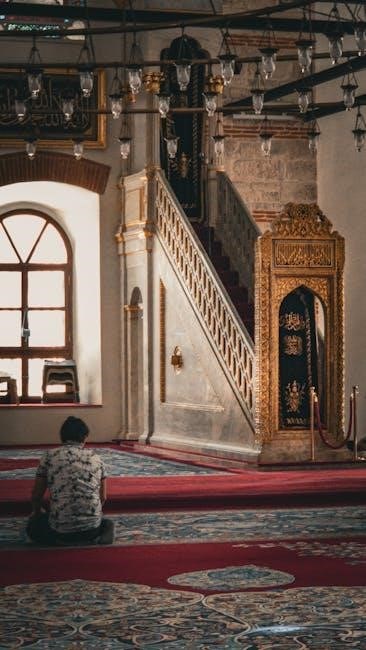
The Day of Arafah is renowned for its extraordinary virtue, particularly in the acceptance of supplications (dua). It is a time when Allah (SWT) is most generous and inclined to respond to the prayers of believers. The Prophet Muhammad (peace be upon him) highlighted that no day is more beloved to Allah than the Day of Arafah, where He boasts about the pilgrims to His angels. Dua made on this day is considered among the most readily accepted, as it is a day of divine mercy and forgiveness. Pilgrims and non-pilgrims alike are encouraged to devote their time to sincere supplication, seeking forgiveness, guidance, and blessings. The combination of fasting and dua on this day amplifies its spiritual rewards, making it a unique opportunity for believers to connect with Allah and have their prayers answered.

Recommended Actions on the Day of Arafah
Fasting and supplication (dua) are highly encouraged on the Day of Arafah. It is a Sunnah of the Prophet (peace be upon him) and a means of seeking divine mercy.
Fasting on the Day of Arafah
Fasting on the Day of Arafah is a highly recommended Sunnah for those who are not performing Hajj. It is a means of seeking divine forgiveness and spiritual purification. The Prophet Muhammad (peace be upon him) said, “Fasting on the day of Arafat expiates the sins of the past and coming year.” This act of worship is considered a form of self-discipline and devotion, helping believers draw closer to Allah. It is particularly beneficial for non-pilgrims, allowing them to share in the blessings of this sacred day. Fasting on Arafah is a powerful way to seek mercy, forgiveness, and spiritual growth, making it a cherished practice among Muslims worldwide. By observing this fast, individuals can experience the profound rewards associated with this day.
Encouragement of Dua and Supplication
The Day of Arafah is renowned as a time when duas (supplications) are readily accepted by Allah. It is the best day of the year for seeking forgiveness and mercy. The Prophet Muhammad (peace be upon him) emphasized that there is no day when Allah frees more people from Hellfire than on this day. Encouraging Muslims to engage in heartfelt dua, he stated that Allah descends to the lowest heaven, bragging about the pilgrims to the angels and forgiving their sins. For non-pilgrims, this day is an opportunity to connect with Allah through sincere supplication, seeking guidance, health, and prosperity. Many recommended duas for Arafah Day, such as “Here I am, You have no partner,” reflect the essence of devotion and humility. Muslims are urged to make the most of this blessed day by turning to Allah with earnest prayers.
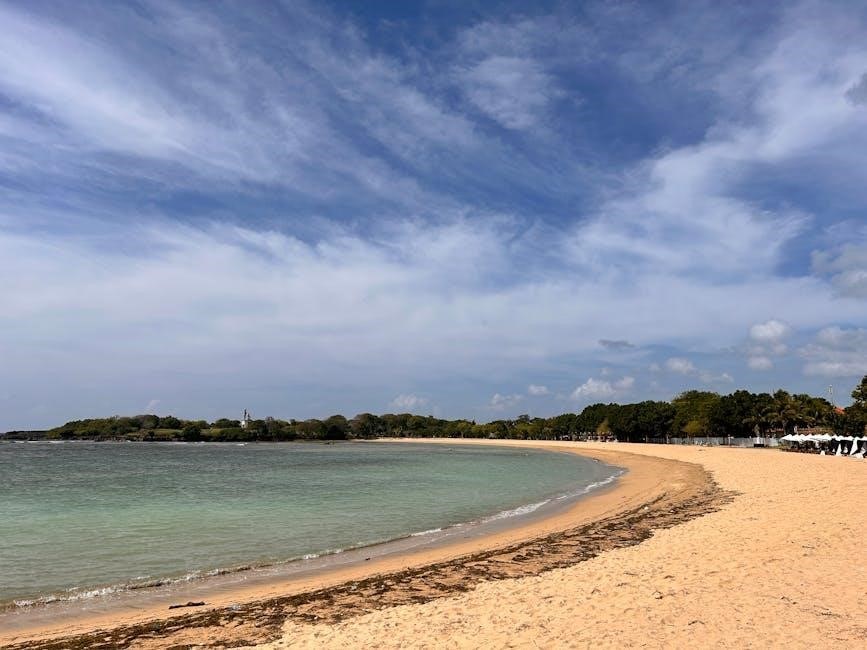
Essential Duas for the Day of Arafah
The Day of Arafah is a time for heartfelt supplication. Recite duas like “Here I am, You have no partner” and “O Allah, make me fear You as if I see You.” These prayers reflect devotion and humility, seeking forgiveness, guidance, and mercy.
Popular Duas Recited on the Day of Arafah
The Day of Arafah is renowned for its powerful supplications, which are deeply rooted in Islamic tradition. Among the most popular duas recited is the declaration: “Here I am, You have no partner. Here I am. Verily all praise, bounty, and sovereignty belong to You. You have no partner.” This duaa, often recited by pilgrims on the plains of Arafah, emphasizes submission and devotion to Allah. Another widely recited prayer is: “O Allah, make me fear You as if I can see You, and make me happy by fearing You.” Additionally, many Muslims recite Surah Al-Araf and specific Quranic verses, seeking forgiveness and mercy. These duas reflect the essence of the day, focusing on humility, repentance, and the pursuit of divine mercy. They are recited with conviction, hoping for Allah’s acceptance and blessings.
Dua for Forgiveness and Mercy
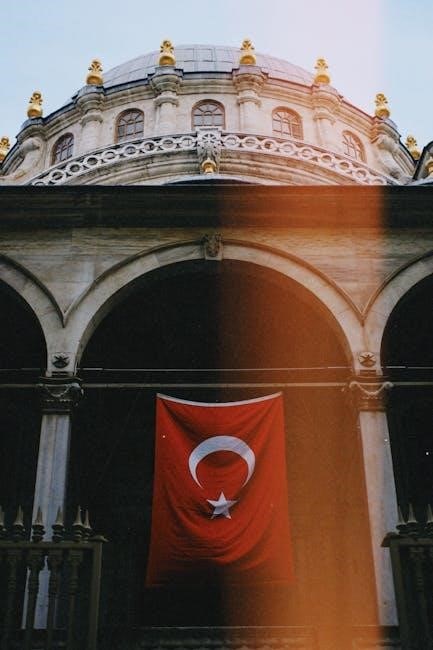
The Day of Arafah is a time when Muslims seek divine forgiveness and mercy. A powerful duaa often recited is: “O Allah, forgive me and have mercy upon me. Grant me Your blessings and guide me to righteousness.” This supplication reflects the essence of the day, as it is believed that Allah’s mercy is abundant on Arafah; Many also recite: “O Allah, I seek Your forgiveness and Your mercy. You are the Most Forgiving, the Most Merciful.” These duas, rooted in Islamic tradition, emphasize humility and repentance. They are often recited with sincerity, acknowledging Allah’s grace and seeking His pardon for past sins. The Prophet Muhammad (peace be upon him) encouraged believers to seek forgiveness on this blessed day, making it a focal point for spiritual renewal.
Dua for Guidance and Righteousness
On the Day of Arafah, Muslims often supplicate for guidance and righteousness, seeking Allah’s direction in their lives. A recommended duaa is: “O Allah, make me fear You as if I can see You and grant me happiness through Your piety.” This duaa emphasizes the desire to live a righteous life, fearing Allah out of love and reverence. Another powerful duaa is: “O Lord, grant me guidance and make me steadfast on the path of righteousness.” These supplications reflect the Prophet Muhammad’s (peace be upon him) teachings, encouraging believers to seek divine guidance. The Day of Arafah is a unique opportunity to reconnect with Allah, seeking His help in adhering to His commands and avoiding sin. By reciting such duas, Muslims strive to align their lives with Allah’s will, seeking spiritual clarity and moral strength.

How to Make Your Dua Effective
To make your dua effective on the Day of Arafah, ensure sincerity, focus, and proper etiquette. Be persistent, heartfelt, and avoid distractions while supplicating to Allah.
Etiquette of Making Dua
The etiquette of making dua on the Day of Arafah involves sincerity, focus, and proper conduct. Begin by facing the Kaaba, raising your hands, and ensuring your heart is fully engaged. Recite recommended duas, such as those from the Quran and Sunnah, with conviction and humility. Avoid pride or arrogance, as these can hinder acceptance. Pray with a clean heart and body, ensuring wudu (ablution) is maintained. Use the Prophet’s (PBUH) teachings, such as starting with praise of Allah and blessings upon the Prophet. Avoid distractions and maintain patience, trusting in Allah’s response. Incorporate the Talbiyah and remember the Day’s significance. These practices enhance the likelihood of your dua being accepted. By adhering to these etiquettes, you can maximize the spiritual benefits of this blessed day.
Best Times to Make Dua on Arafah Day
The most auspicious times to make dua on the Day of Arafah include the period after Fajr and before sunrise, as well as the time when pilgrims gather at the Mount of Mercy during the afternoon. Specifically, the moment after Dhuhr prayer is highly recommended, as it aligns with the Prophet’s (PBUH) practice. Additionally, the time just before Maghrib is considered sacred, as Allah descends to forgive sins. These windows are believed to be when divine mercy and forgiveness are most abundant. Many scholars emphasize that while these times are optimal, du’a can and should be made throughout the entire day, especially with sincerity and focus. By leveraging these blessed moments, believers can maximize their spiritual connection and seek Allah’s blessings effectively.
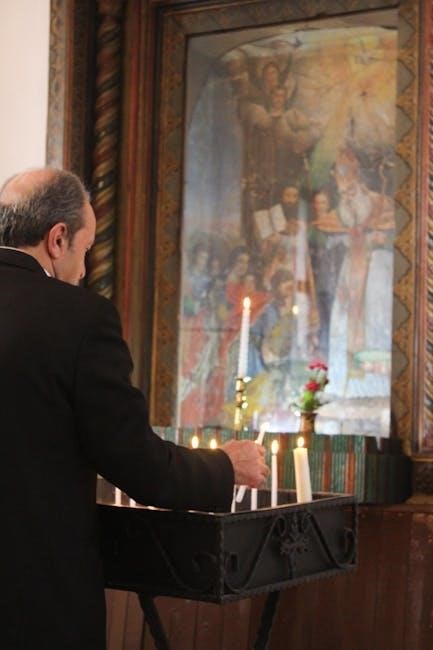
Benefits of Dua on the Day of Arafah
The Day of Arafah offers unparalleled divine mercy, with forgiveness of sins, release of souls from Hellfire, and abundant blessings for believers seeking spiritual growth and closeness to Allah.
Forgiveness of Sins
The Day of Arafah is renowned for its divine forgiveness, as it is the day when Allah forgives an immense number of sins. It is considered the best day of the year, and the Prophet (peace be upon him) emphasized its significance by stating that Allah frees more souls from Hellfire on this day than any other. For pilgrims and non-pilgrims alike, it is a time when sincere repentance and supplications are met with mercy. Fasting on this day, a Sunnah for those not performing Hajj, is a means of seeking forgiveness and spiritual cleansing. Additionally, the duas recited on this day are particularly cherished, as they seek Allah’s pardon and blessings. The forgiveness offered on Arafah is a profound opportunity for believers to reflect, seek mercy, and renew their connection with Allah.
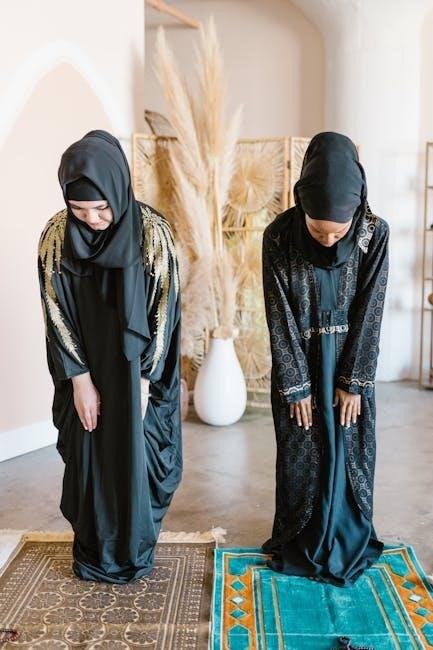
Release of Souls from Hellfire
The Day of Arafah is uniquely blessed as the day when Allah releases countless souls from Hellfire, showcasing His boundless mercy and grace. The Prophet (peace be upon him) stated that no other day sees as many people freed from Hellfire as this day. This divine liberation is a testament to Allah’s compassion and forgiveness. For pilgrims on the plains of Arafah and believers worldwide, it is a time to seek mercy and intercede for others. The Prophet also mentioned that duaa made on this day is highly accepted, offering hope for the release of souls from torment. This day is a powerful reminder of Allah’s ability to forgive and liberate, making it a time of immense spiritual relief and joy for the Muslim community. The blessings of Arafah extend beyond the living, encompassing even those who have passed away.
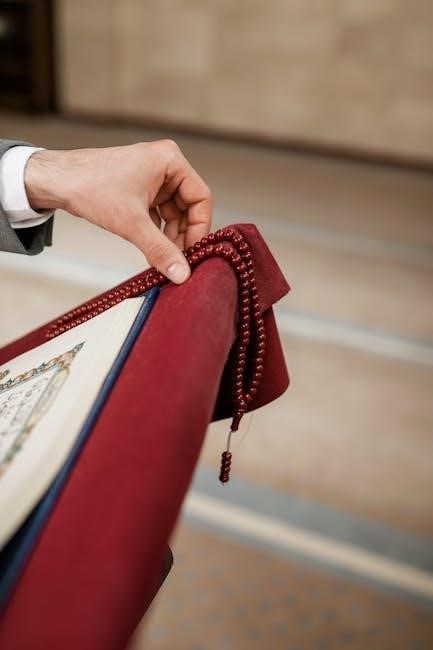
The Role of the Day of Arafah in Hajj
The Day of Arafah is the pinnacle of the Hajj pilgrimage, where pilgrims gather on the Plain of Arafah to perform Waquf, seeking forgiveness and divine mercy.
Significance for Pilgrims
The Day of Arafah holds immense significance for pilgrims performing Hajj, as it marks the climax of their spiritual journey. On this day, pilgrims gather on the Plain of Arafah, reenacting the Prophet Muhammad’s (peace be upon him) final sermon, which emphasized the essence of Hajj. The act of Wuquf (standing) in Arafah is a compulsory ritual, symbolizing humility and devotion. Pilgrims spend their time in supplication, seeking forgiveness, and reconnecting with Allah. The Prophet (peace be upon him) stated that standing on Arafah is the most critical aspect of Hajj, highlighting its importance. For pilgrims, this day is a divine opportunity to cleanse their sins and attain spiritual renewal, making it a pivotal moment in their Hajj experience. The collective gathering also fosters a sense of unity and equality among all pilgrims.
Connection to the Plain of Arafah
The Plain of Arafah, a vast open area outside Mecca, holds profound religious significance as the site where the Day of Arafah is observed. It is here that pilgrims gather during Hajj to perform the ritual of Wuquf, or standing, which is a central pillar of the pilgrimage. The plain is often referred to as the “Mountain of Mercy” (Jabal ar-Rahmah), where the Prophet Muhammad (peace be upon him) delivered his final sermon, emphasizing the unity of humanity and the essence of Islamic teachings. The Day of Arafah is deeply connected to this sacred land, where pilgrims engage in heartfelt supplications, seeking forgiveness and divine mercy. The plain’s historical and spiritual significance makes it a focal point for Muslims worldwide, whether they are performing Hajj or observing the day from afar.

The Day of Arafah is a blessed opportunity for Muslims to seek forgiveness, mercy, and spiritual growth. By engaging in fasting, heartfelt duaa, and reflection, believers can maximize its divine blessings.
Final Thoughts on Maximizing the Blessings of Arafah Day
The Day of Arafah is a sacred opportunity for Muslims to draw closer to Allah, seek forgiveness, and attain spiritual growth. By fasting, engaging in heartfelt duaa, and reflecting on one’s actions, believers can maximize the blessings of this day. It is essential to approach Arafah with sincerity, humility, and a deep connection to Allah. Reciting specific duas, such as those found in “dua arafah pdf” resources, can help guide your supplications and enhance your worship. Remember, this day is a gift from Allah, and by embracing its rituals and spirit, you can experience profound mercy and forgiveness. Make the most of this blessed day to strengthen your faith and seek a brighter spiritual future.
